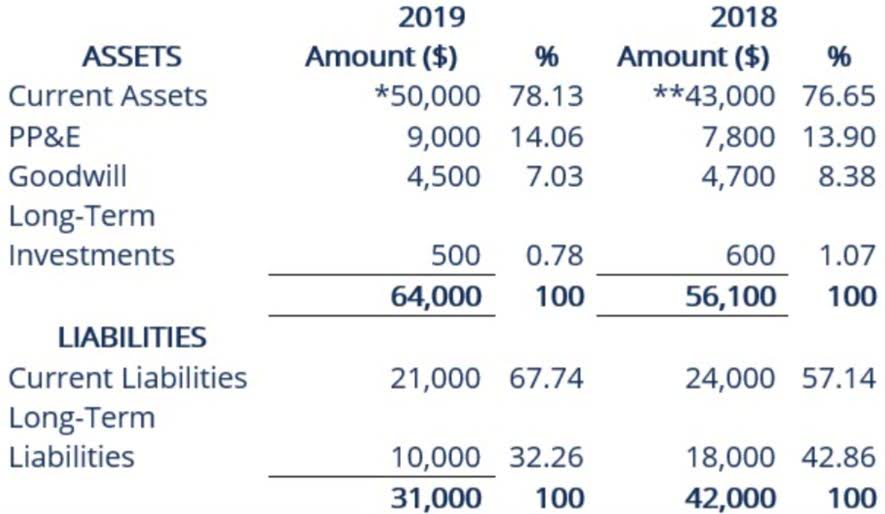
However, when it comes to certain property, such as vehicles, there are special rules and limits for depreciation that must be considered. There comes a time in the life of every vehicle when it is no longer useful. Either it has bookkeeping traveled its last mile, absorbed a devastating impact, suffered the violence of vandals or endured saturation from flooding. Also, an insurance adjustor may consider its cost of repairs to be prohibitive and more than the current value of the vehicle. Then, to estimate the salvage value, deduct 20% to 40% of the car’s clean title worth.

Formula and Calculation of Salvage Value

She has written for numerous personal finance publications including Money Under 30 and The College Investor. Delve into the complexities of the evolving tax landscape and political shifts impacting your firm. Understanding the implications of these shifts is crucial for every tax professional as we navigate through these transformative times.

How Is Residual Value Calculated?
You probably know that the value of a vehicle drops dramatically just after you buy it, and it depreciates with each year. You can use this calculator to either find out how much your car is worth or check whether the price for a used car you were offered is fair. It also helps you estimate the most significant component of the true cost of owning a car – the true yearly cost of car acquisition. Book value is the historical cost of an asset less the accumulated depreciation booked for that asset to date. This amount is carried on a company’s financial statement under noncurrent assets.
- Kelley Blue Book (KBB) notes that a salvaged, reconstructed or otherwise clouded title permanently negatively affects a vehicle’s value.
- In accounting, residual value refers to the remaining value of an asset after it has been fully depreciated.
- The difference between book value and salvage value lies in their definitions, purpose, and usage in accounting and financial analysis.
- For example, consider a delivery company that frequently turns over its delivery trucks.
- The total amount to be depreciated would be $210,000 ($250,000 less $40,000).
How To Calculate Salvage Value Of Car
- It is a concept that affects not only vehicles but also buildings, machines and crops.
- Anything your business uses to operate or generate income is considered an asset, with a few exceptions.
- If a company expects that an asset will contribute to revenue for a long period of time, it will have a long, useful life.
- The buyer will want to pay the lowest possible price for the company and will claim higher depreciation of the seller’s assets than the seller would.
- You can find the asset’s original price if the salvage price and the depreciation rate are known to you with the salvage calculator.
- This calculation guides both lawyers and clients in understanding potential compensation or charges related to vehicle loss or damages.
While there are risks to buying a salvage title vehicle, there are also some benefits. If you can get the car checked out by a reliable mechanic to confirm it is safe to drive, then a salvage title vehicle could be the right purchase. The salvage value is the amount of money the insurer would recoup when selling the vehicle through a licensed salvage vendor. So, instead of selling it to a salvage vendor, they allow you to repurchase your car, get the needed repairs and drive it again. When you deduct between 20% to 40% of that amount, the vehicle’s estimated https://www.bookstime.com/ value ranges from $6,000 to $8,000. Vehicle tax depreciation can be confusing and time-consuming to navigate without the right tools and resources in place.
If a company expects that an asset will contribute to revenue for a long period of time, it will have a long, useful life. “Repairing a salvage vehicle can be worth it if the cost of repairs is significantly lower than the vehicle’s post-repair market value,” says John Crist, founder of Prestizia Insurance. In general, salvage vehicles are worth between 20% and 40% less than their Kelley Blue Book value.

The total amount to be depreciated would be $210,000 ($250,000 less $40,000). If the assets have a useful life of seven years, the company would depreciate the assets by $30,000 each year. The company pays $250,000 for eight commuter vans it will use to deliver goods across town. If the company estimates that the entire fleet would be worthless at the end of its useful how to determine salvage value of a car for depreciation life, the salvage value would be $0, and the company would depreciate the full $250,000. Companies take into consideration the matching principle when making assumptions for asset depreciation and salvage value. The matching principle is an accrual accounting concept that requires a company to recognize expense in the same period as the related revenues are earned.
- An asset’s depreciable amount is its total accumulated depreciation after all depreciation expense has been recorded, which is also the result of historical cost minus salvage value.
- Book value is calculated by subtracting accumulated depreciation from the asset’s original purchase price.
- Book value is the value of an asset recorded in a company’s financial statements.
- Laura Longero is an insurance expert and Executive Editor at CarInsurance.com, where she specializes in helping consumers navigate the complexities of the financial and insurance industries.
Salvage value or Scrap Value is the estimated value of an asset after its useful life is over and, therefore, cannot be used for its original purpose. For example, if the machinery of a company has a life of 5 years and at the end of 5 years, its value is only $5000, then $5000 is the salvage value. A lease buyout is an option that is contained in some lease agreements that give you the option to buy your leased vehicle at the end of your lease.

